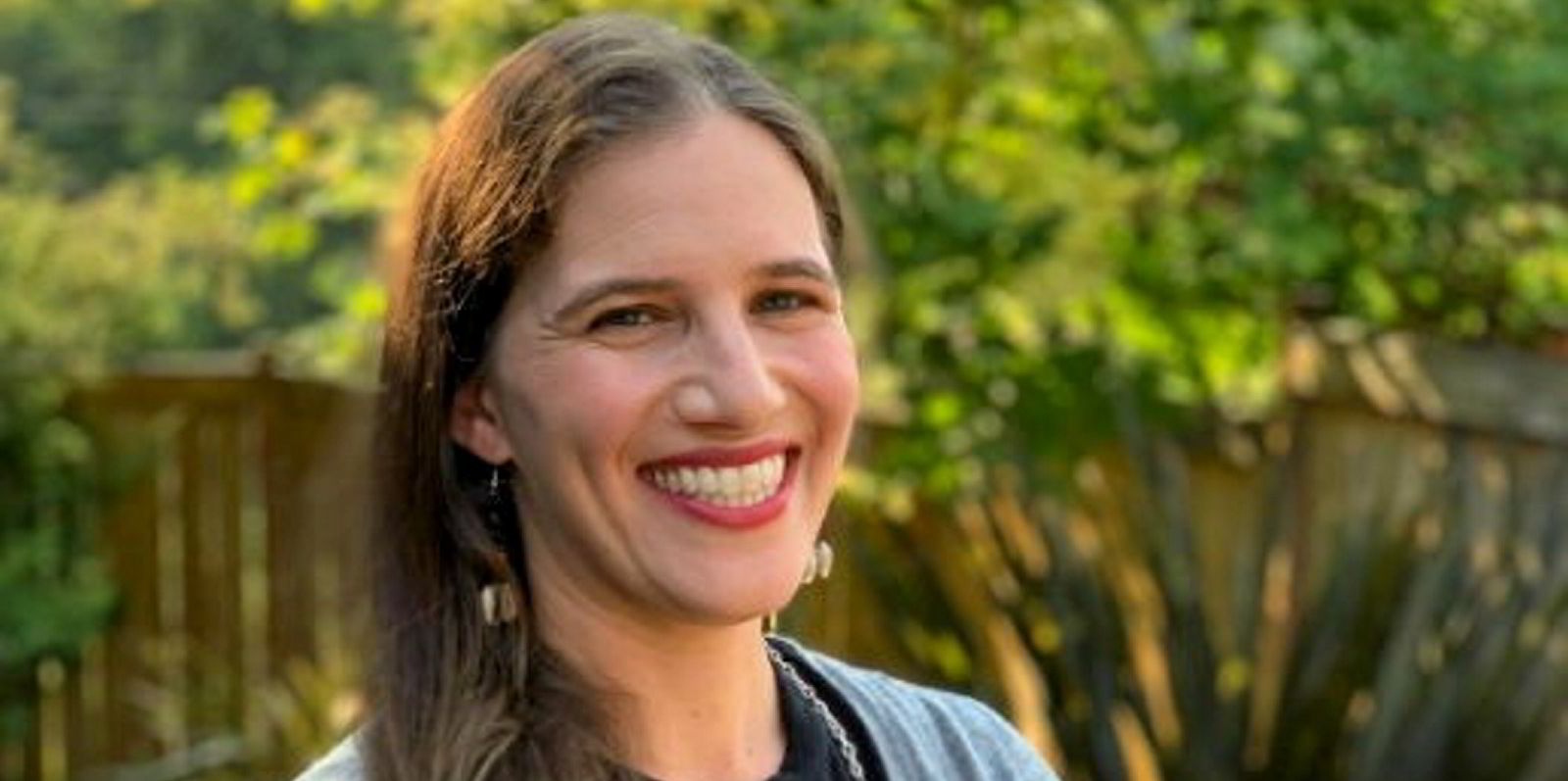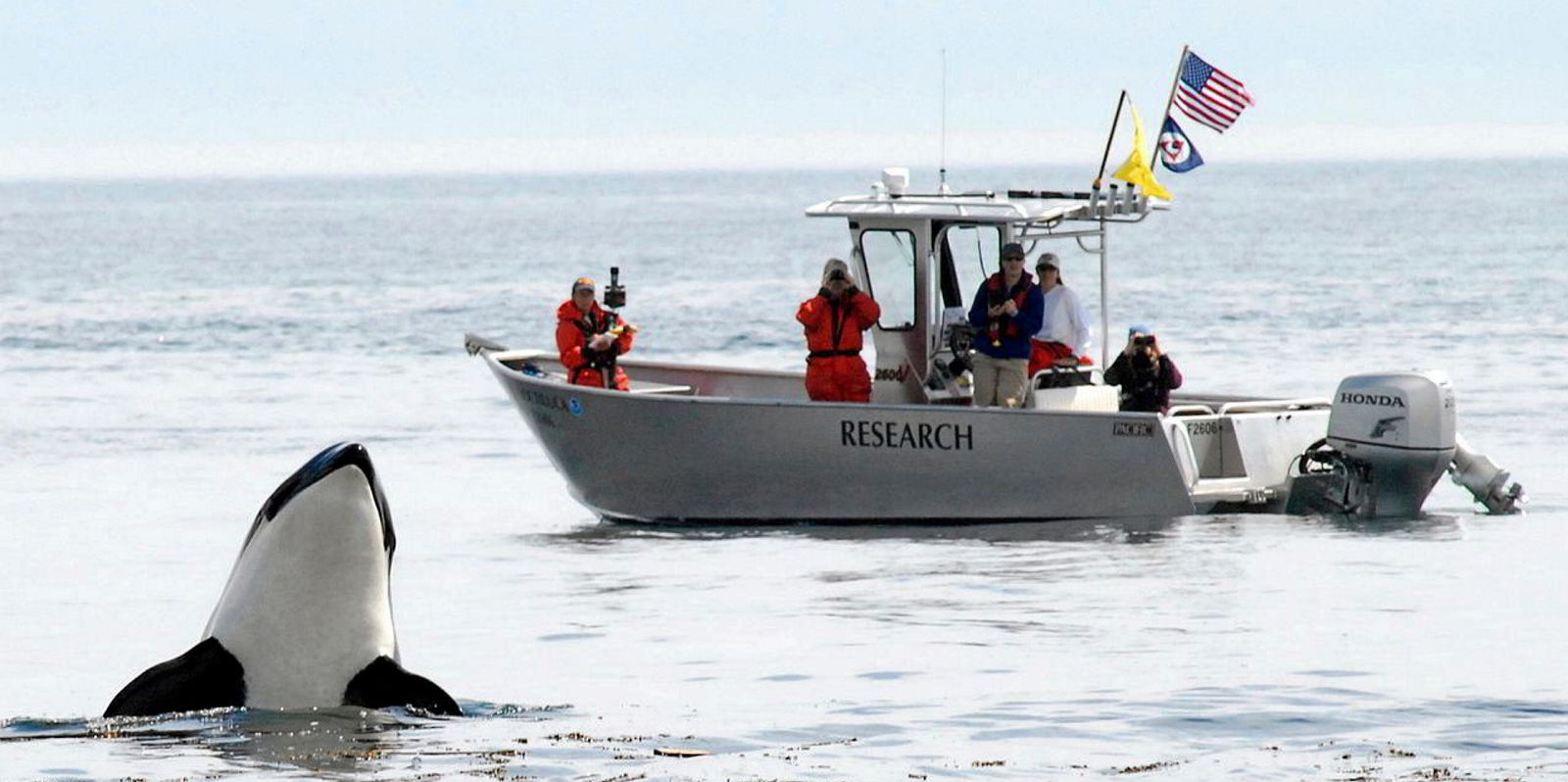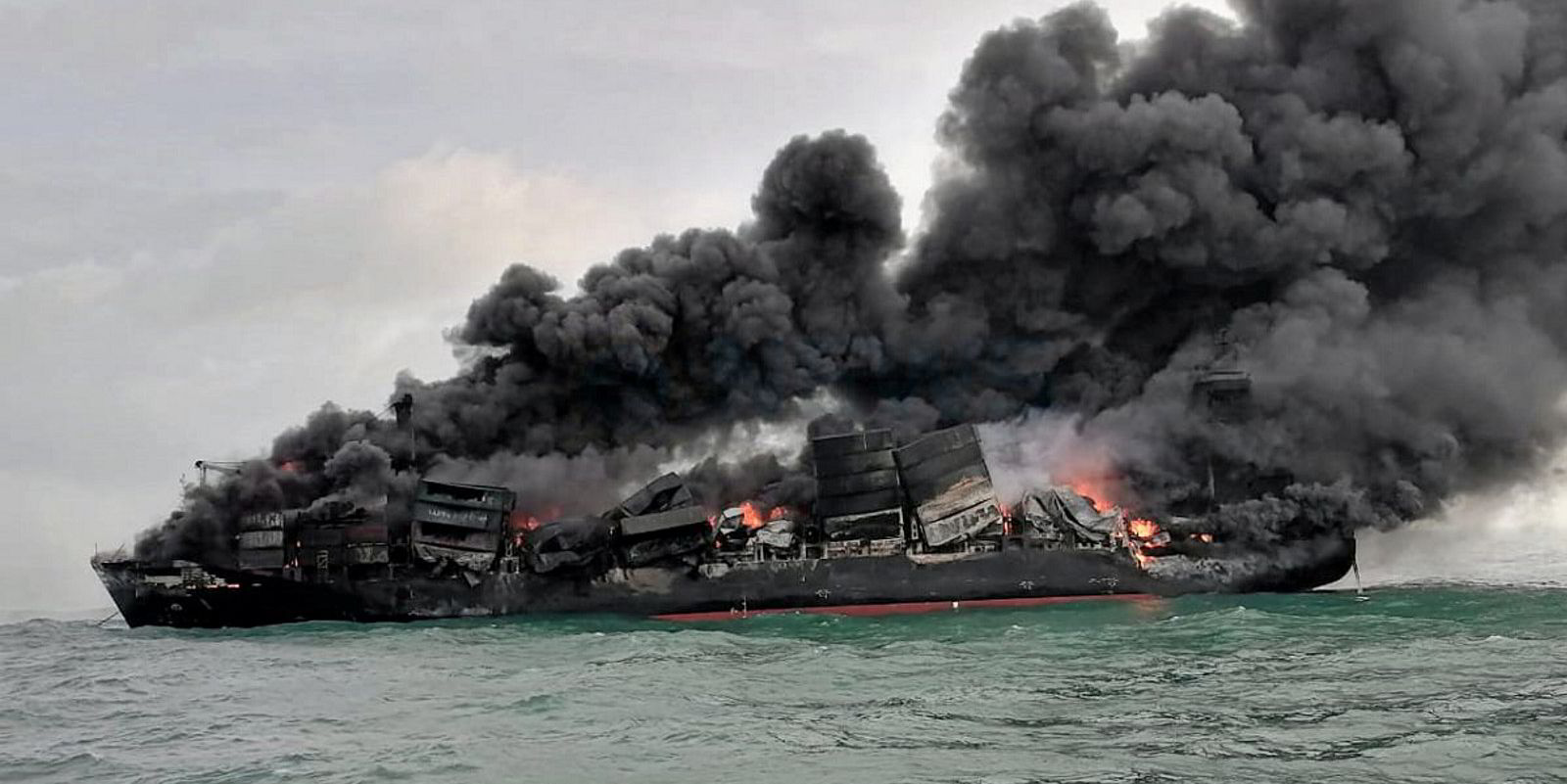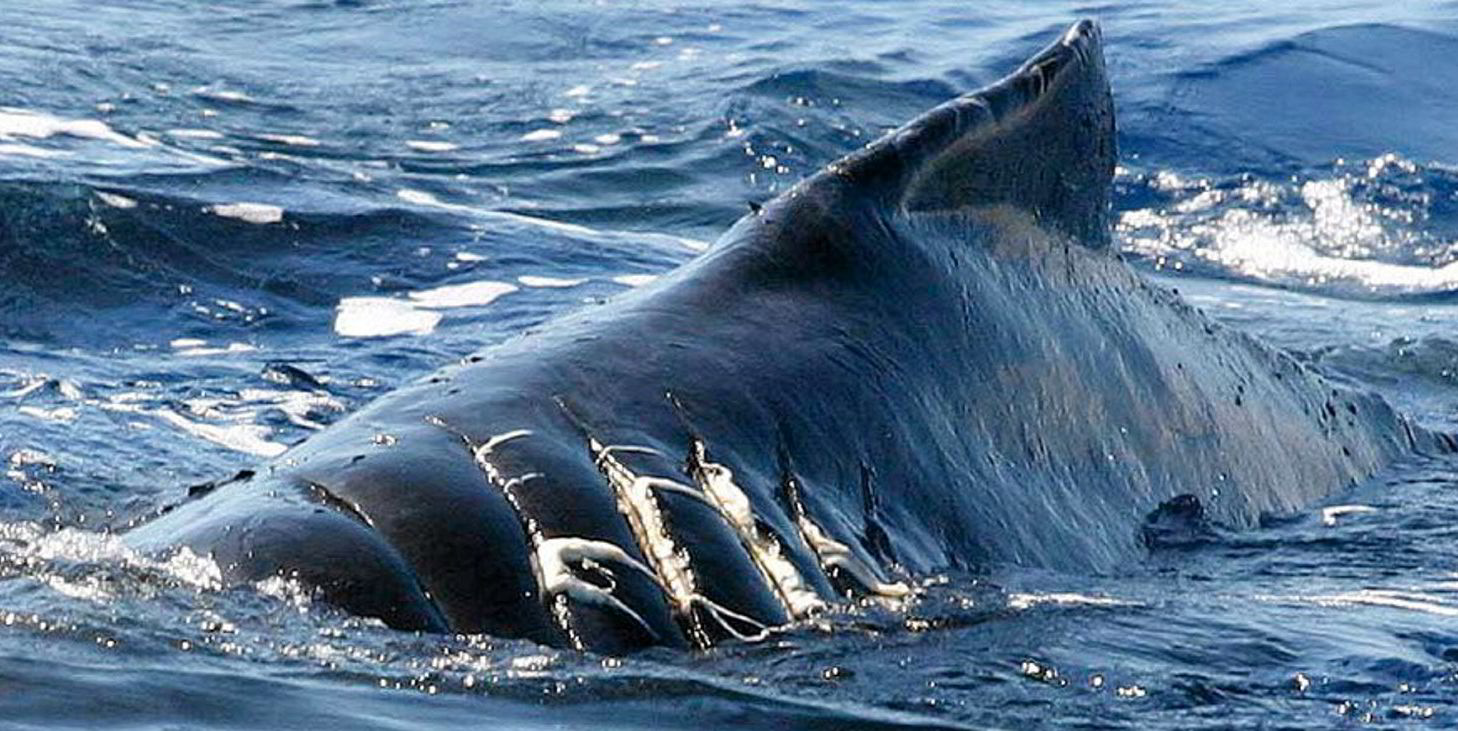The north-western US-Canadian border splits the Salish Sea in two, but do not tell that to J pod — a family of southern resident killer whales that are often found in waters of both countries.
The noise from shipping represents a threat to this endangered orca population, but efforts designed to protect them from the dangers vary in the two countries, with the US lagging behind the neighbouring Canadian province of British Columbia.
In British Columbia, the port of Vancouver’s Enhancing Cetacean Habitat and Observation Program (ECHO Program) has secured more than 80% participation from shipping companies in efforts aimed at reducing underwater noise.
On the other side of the border, a similar effort called Quiet Sound is just getting off the ground for US waters of the Salish Sea, including Puget Sound.
Katherine Kilduff, a senior attorney for US environmental group Center for Biological Diversity, said the US is five years behind the Canadian effort — but she added that is an optimistic estimate.
“The US government has not been willing to use the Endangered Species Act to protect southern residents [killer whales] from commercial shipping in Puget Sound like they need to,” she said.
Southern resident killer whales are at the brink of extinction, with just 73 in existence.
Noise pollution from ships is one of the orcas’ key threats because it hampers their ability to hunt salmon, since they use echolocation to find their prey.
Noise-reduction efforts
The ECHO Program began in 2014 with an effort to better understand the impact of commercial shipping on at-risk cetaceans in the Salish Sea.
Since 2017, it has coordinated voluntary underwater noise reduction efforts in key areas during the southern resident killer whales’ foraging times, including asking ships to slow down in the Haro Strait, Boundary Pass and Swiftsure Bank.
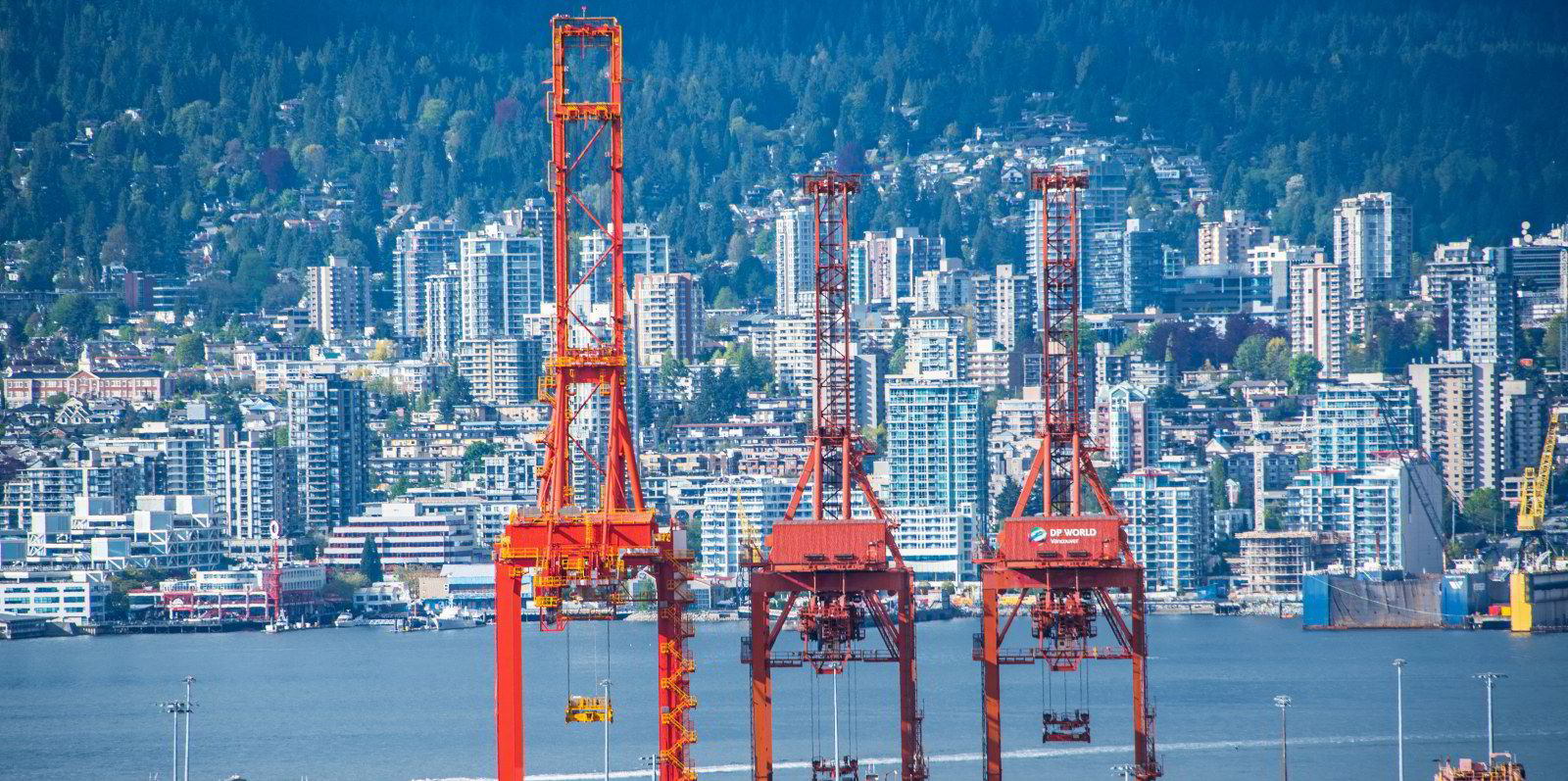
The measures also include lateral displacement — that is, route changes away from foraging areas — in the Strait of Juan de Fuca, the channel that links the Salish Sea to the Pacific Ocean.
The port has yet to directly study whether the programme is helping the killer whales. But it has used computer modelling to determine that the slowing down of vessels in the Haro Strait and Boundary Pass alone would improve orca foraging by 22%.
Paying for pilots
To reduce the risk that slowing down will take a financial toll on shipping, Transport Canada pays for excess pilotage fees that are incurred as a result of measures that ships take under the programme.
The port estimates that under the voluntary programme, 10,500 ship transits have been carried out at reduced speeds or at increased distances from critical habitats.
“We believe that the consistently strong participation rates in the ECHO Program’s underwater noise reduction efforts demonstrate how voluntary measures can deliver meaningful change for at-risk whales without government regulation,” the port said in response to TradeWinds’ questions.
Seaspan ULC, which operates tugs, barges and ferries on the coast of British Columbia, is among the participants in the programme.
Environment manager Daryl Lawes said part of the reason is that the company aims to stay ahead of regulation in the hope that voluntary measures can prevent the need for broader mandatory rules that have a sweeping impact on business.
“We think participating in these voluntary initiatives is a better way ... than over-regulating it,” he said.
Across the border, the non-profit Washington Maritime Blue announced in August that it hired Rachel Aronson to lead Quiet Sound, with plans to launch voluntary initiatives to cut underwater noise from large ships in the waters of the north-western US state.
That came as the Center for Biological Diversity was already involved in a lawsuit against the federal government that sought additional considerations for orcas as part of a dredging project to improve navigation in Seattle Harbor.
That lawsuit was settled in November when the Port of Seattle stepped in, agreeing to provide funding to Quiet Sound and evaluate gaps in the Salish Sea hydrophone network to monitor vessel noise.
But Kilduff said Quiet Sound cannot do it alone.

She said US officials need to step up to do their duty under the Endangered Species Act to ensure that, for example, the impact on orca populations is considered before approval of major projects on Puget Sound.
“They have a duty to use all of their abilities to keep southern residents from going extinct, so they need to be proactive,” Kilduff said.
